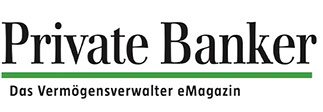

Value Column von Hans Peter Schupp
5 APRIL 2024
Selected European bank shares remain attractive
Shares of European banks have outperformed the broad market since the beginning of the year. The rise in interest rates has supported this move. But what will happen if the ECB cuts interest rates again in the summer, as expected? Interest income is then likely to fall in the coming months, although banks are likely to use interest rate hedges to avoid a sharper decline. The market could increasingly focus on institutions that have well-diversified and high-growth income sources. These include, for example, exposure to emerging markets, investment banking or a profitable asset management division. However, in view of the low price/earnings ratio and of up to double digit dividend yields, these stocks should continue to perform well. However, the outperformance compared to the overall market could weaken.
Outperformance is used to reduce positions
Those aspects are also taken into account in our Contrarian Value Euroland Fund. But we are less interested in a single event such as an interest rate cut. We rather invest on the basis of medium-term earnings potential. The banking sector has gained around 50 percent in the last three years. We have naturally reacted to this and have reduced the weighting of financials by almost 10 percentage points. In other words, we are staying model consistent: outperformers are being reduced because we invest according to the principle of weighting the portfolio stocks as equally as possible according to their price potential.
Core capital ratio has almost doubled
However, this does not mean that we no longer hold any bank shares in the portfolio. Shares in Deutsche Bank and the French Crédit Agricole are still portfolio stocks. This is because the quality of banks‘ balance sheets has improved massively in recent years. The tier 1 capital ratio, i.e. the core capital ratio, has almost doubled in the last 15 years: banks have reduced their risk-weighted assets and have reinvested their profits at the same time in order to strengthen their equity. This has led to a renewed focus on shareholders, as demonstrated by Deutsche Bank’s share buyback program.
P/B ratio of bank stocks currently low
But there is another key figure that we pay attention to: The price-to-book ratio (P/B ratio).
If the security of a stock investment is measured by the risk of a setback, the price-to-book value ratio provides good guidance. The book value is the amount shown in the balance sheet by which the assets exceed the liabilities. By dividing the equity by the number of shares you arrive at the book value per share is calculated. If the price/book ratio is less than one, the assets shown in the balance sheet are not paid for in the share price. The lower the ratio, one may assume that the greater part of risks is reflected in the share price. At Crédit Agricole, this value is at 0.46, and at Deutsche Bank p/b ratio is just at 0.36 for 2023.
Translation for convenience only!
About the author: Hans Peter Schupp is a managing partner of Fidecum AG und the portfolio manager of the Contrarian Value Euroland Fund.

